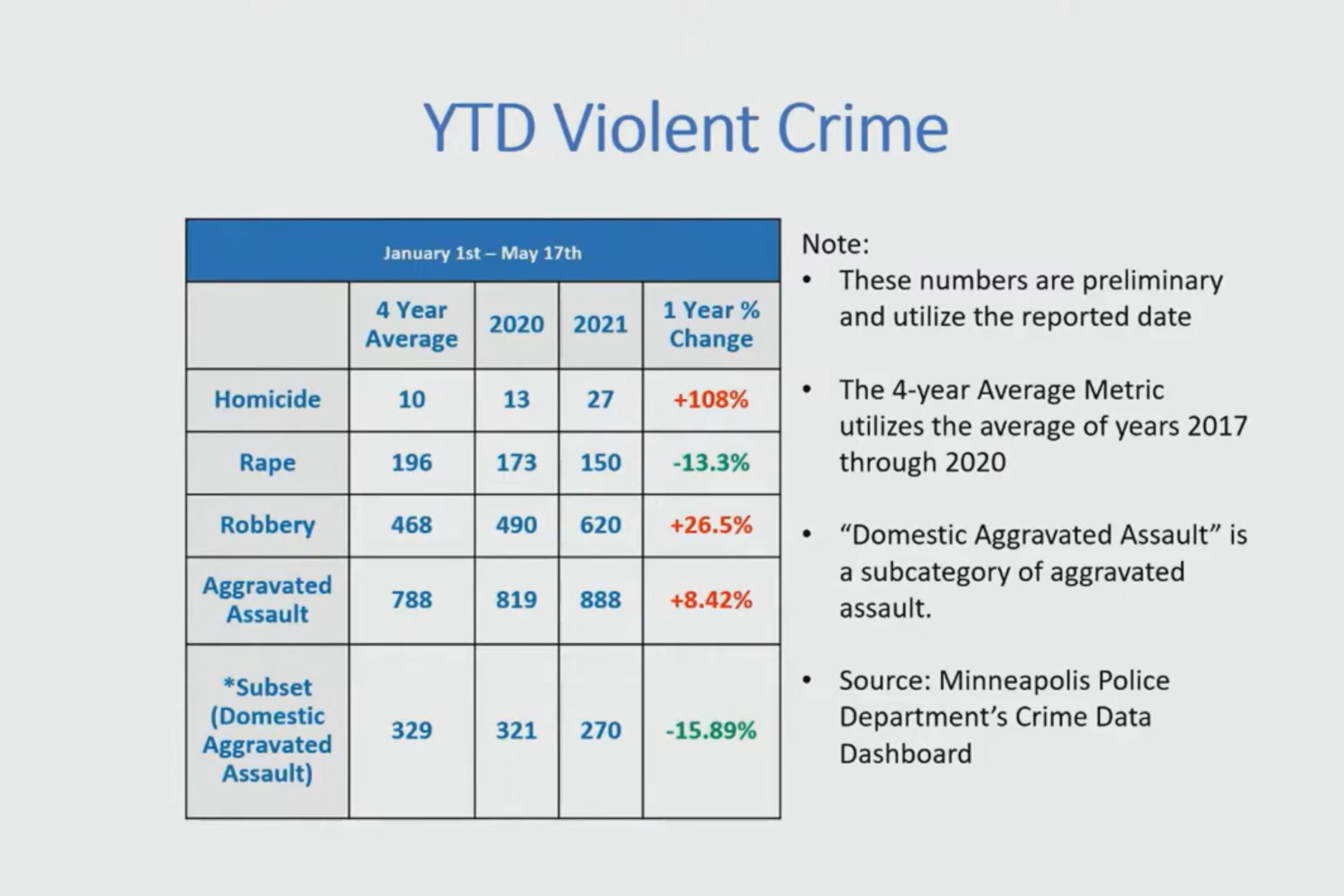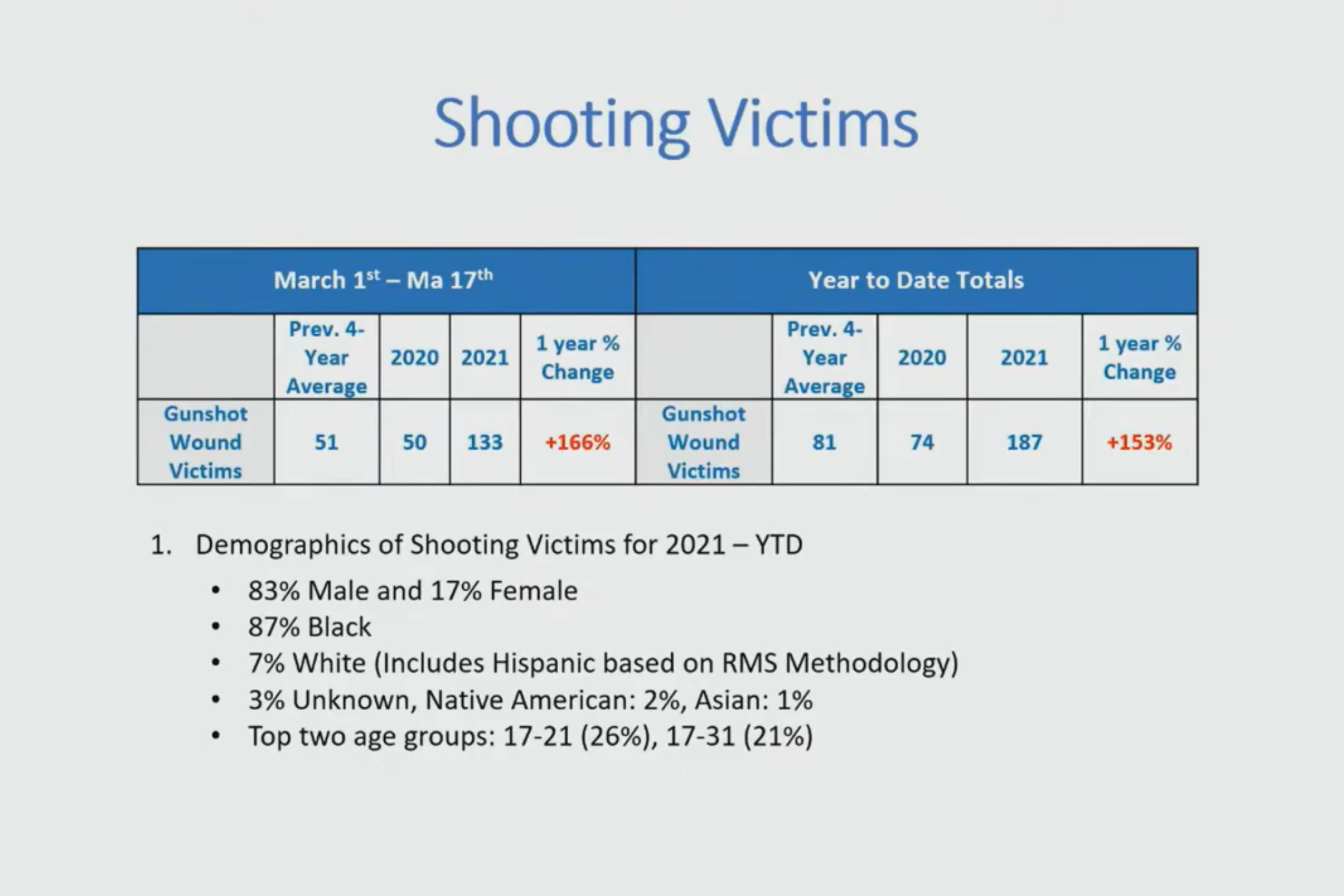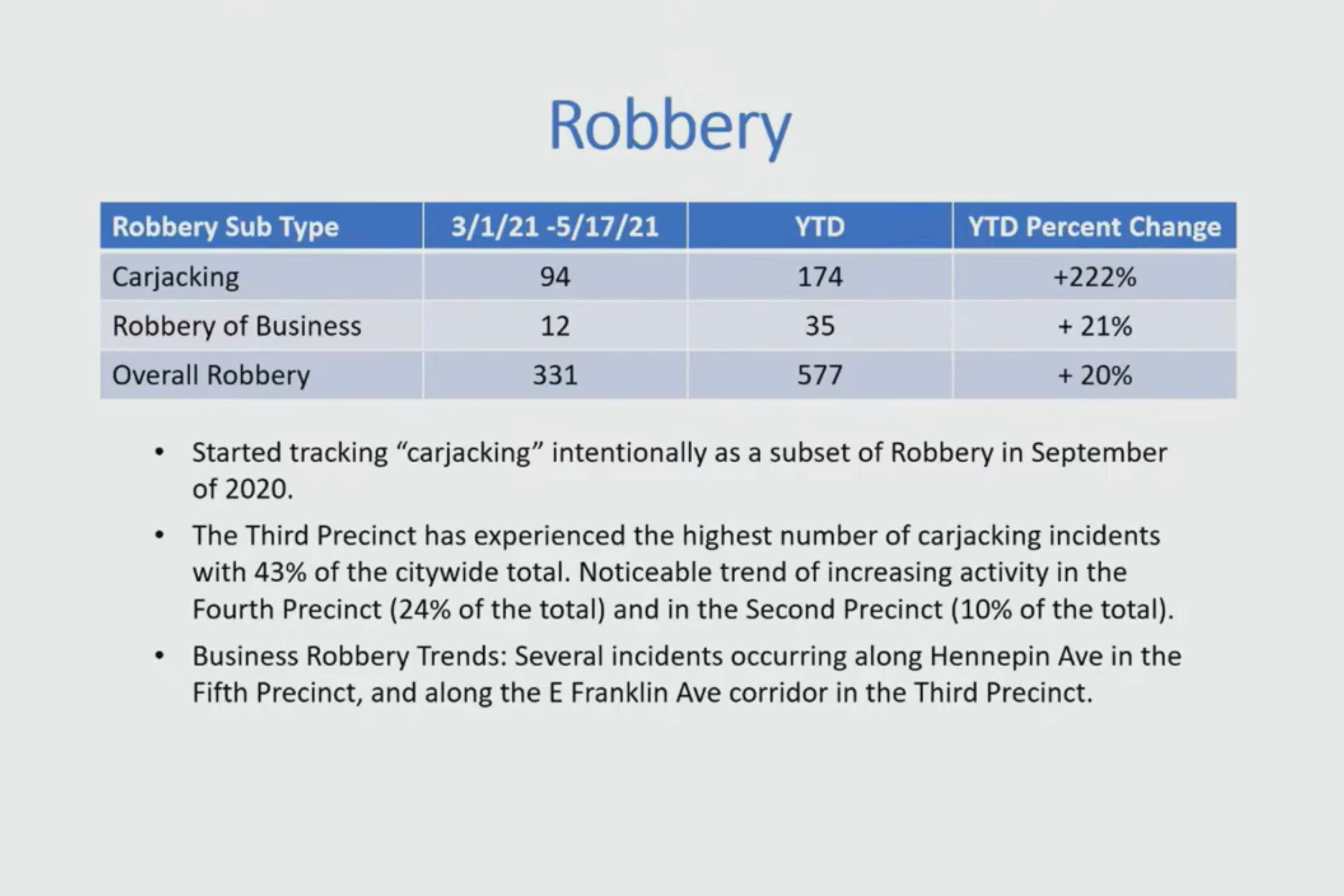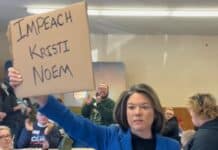2020 was one of the deadliest years in Minneapolis history with 83 homicides, yet the city is on track to surpass that record number in 2021.
The Minneapolis City Council was told Thursday that homicides have more than doubled so far this year compared to the same timeframe last year. This year’s 27 murders (as of May 17) represent a 108% increase over the 13 reported at this point in time last year.
With 97 homicides, 1995 was the worst year on record, followed by 83 in 1996, meaning 2020 tied for the second-worst year.

The number of gunshot wound victims has increased even more drastically, jumping from 74 at this point in 2020 to 187 in 2021. That’s a 153% increase.
According to a data analyst for the Minneapolis Police Department, the average number of shooting victims per week is also beginning to skyrocket, moving from 4.7 in 2018 and 5.2 in 2019 to 9.8 in 2020. So far for 2021, the average number of victims per week is about 11, she said.

She also told the council that black males account for the vast majority of shooting victims in the city. Eighty-seven percent are black while 83% are male, she said.
Continuing with 2020’s trend, carjackings have seen a 222% increase this year compared to the same point in time last year. The city has reported 174 carjackings, which is more than one per day. The Third Precinct has experienced the highest number of carjackings and accounts for 43% of the citywide total.

Catalytic converter thefts, a subset of thefts from motor vehicles, are up 27%. One “concerning trend” identified by the MPD is the theft of firearms from vehicles, which are up 130%.
Following an exceptionally violent weekend, Minneapolis Mayor Jacob Frey released a 14-page public safety proposal Monday, which includes new funding for police as well as several suggestions for creating a “culture shift” in the MPD.
“This must mark a turning point,” Frey said at a press conference this week. “The ultimate goal is to make all Minneapolis neighborhoods safer.”
Some council members, however, have already expressed opposition to Frey’s proposal, further solidifying the rift between the pro-defund council and the more measured fund-and-reform approach advocated by Frey.










